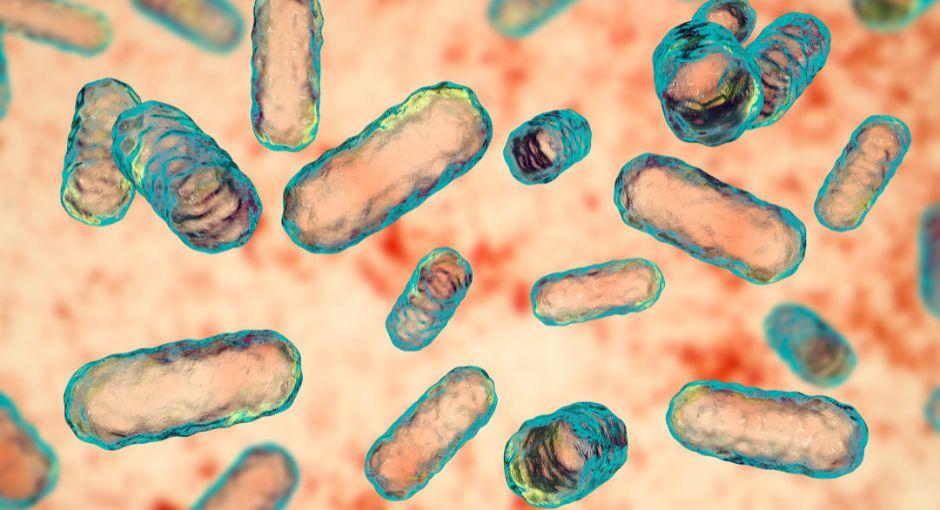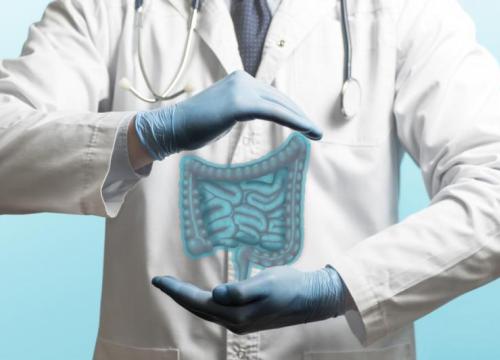The Gut-Brain Connection: Why Diet Can Help Parkinson’s Symptoms & Brain Health

The brain and gastrointestinal (GI) system are connected. Resident bacteria, including that in the gut, are unique to every person and a major part of our makeup — bacteria even outnumber cells in the body. The capability of that bacteria, known as the microbiome, is enormous. New research strongly suggests a link between the gut and Parkinson’s disease (PD). Learn what science is finding and discover how you can begin improving gut health today.
This article is based on Parkinson's and the Gut-Brain Connection a Parkinson’s Foundation Expert Briefing webinar presented by Carley Rusch, PhD, RDN, LDN, Medical Science Liaison at Abbott Nutrition.
The Gut’s Microbiome
The gut microbiome spans from the mouth to the colon. It is the network of microorganisms — bacteria, viruses, fungi and more — and their collective genetic material that lives within the intestinal tract. The greatest density and diversity of these microorganisms are found within the colon.
Studies on the relationship between gut bacteria and health date back hundreds of years. Research on the benefits of bacteria in yogurt for treating diarrhea was recorded as early as the 1400s. Today, technology known as high-throughput DNA sequencing gives researchers the power to rapidly identify the thousands of bacterial DNA present in individual stool samples.
Science is uncovering the many ways the gut microbiome can influence brain health, body function and overall wellbeing. It can even impact how the body processes oral medications.
Exploring the Gut-Brain Relationship in PD
Research suggests that what happens in the gut influences the brain by way of the gut-brain axis — a biochemical communication between the gastrointestinal tract and the central nervous system.
While research on Parkinson's and the microbiome is in its infancy, scientists have found the gut bacteria in people living with PD differs from that of people without PD.
In Parkinson's, alpha-synuclein proteins misfold and form clumps in the brain. These clusters are called Lewy bodies. It has been suggested that these clumps, which are also found in other neurodegenerative diseases, may trigger the loss of dopaminergic neurons. As scientists have dug deeper into Parkinson’s progression, they have also been able to find alpha-synuclein pathology along the GI tract in people with Parkinson's.
What Science Can Tell Us
Gastrointestinal dysfunctions are some of the most common and troublesome non-movement symptoms in PD. Constipation affects up to 70% of people with Parkinson's and often begins before the onset of PD’s telltale movement symptoms and other early signs. It's estimated that up to 75% of people with Parkinson's will also experience speech and swallowing issues. Gastroparesis, delayed emptying of the stomach, is another common PD symptom.
Knowing that alpha-synuclein pathology can also be found along the GI tract in Parkinson’s, over the years researchers have genetically sequenced the microbiome of different people with Parkinson's. They found that some beneficial bacteria, such as Prevotella, Faecalibacterium and Roseburia, are reduced in people with Parkinson's, when compared to someone without the disease. However, researchers also found a boost in other bacteria, such as Bifidobacterium and Lactobacillus, in people with PD — possibly due to constipation.
Research also shows zonulin, a protein marker of intestinal absorbency, found in inflammatory GI conditions such as celiac disease, inflammatory bowel disorders (IBD), diabetes and other autoimmune diseases, is also significantly elevated in people with Parkinson’s. This increased intestinal permeability potentially leads to what is referred to as “leaky gut” (a decrease in the intestinal barrier that can set off inflammation and disease).
Diversity Matters
A healthy microbiome is a diverse one. Research shows decreased microbial diversity in people with inflammatory bowel disorders, such as ulcerative colitis and Crohn's disease, compared to the resident gut bacteria in healthy people.
Diseases, including Parkinson's and IBD, diet and lifestyle all impact gut bacteria diversity. What we eat, how often we exercise, where we live and stage of life all play a role. Other influences include stress, antibiotic and pharmaceutical drug use and pollutants.
Researchers theorize that these factors influence the production of signaling metabolites, which determine whether the gut makes beneficial, anti-inflammatory or inflammatory molecules, such as those that impact cholesterol metabolism, cardiovascular and brain health and more. Communication among signaling metabolites can influence the GI tract, immune system, the liver, brain, lungs, skeletal muscle and other areas of the body.
While various factors can impact on gut microbiota, generally, the microbiome is very stable. Antibiotic or probiotic use often shows short-term changes in resident microbiota, but over time — as a person discontinues use of such medication or supplements and reverts into a familiar diet — the resident microbial makeup typically returns to where it was.
Taking Charge Through Diet
One of the best strategies to improve gut health is increasing fiber. While a probiotic may only introduce one bacteria strain, a fiber-fueled diet can be broken down by multiple types of gut bacteria to encourage a new microbial community to take up residence in the gut, benefitting GI and heart health, improving immune function and easing constipation.
When gut bacteria break down fiber it naturally produces health-boosting short chain fatty acids. These acids boost the gut’s mucus barrier to fight inflammation, protect brain and heart function and more.
Research shows a high-fiber, whole food, plant-fueled diet, with high consumption of fruits and vegetables (known as a Mediterranean-style diet) can increase butyrate and other beneficial bacteria. Right now, researchers are interested in butyrate, a fatty acid that is a major energy source for creating healthy new gut bacteria and can influence immune function.
Plant-Rich, Fiber-Driven Meals Matter
A Mediterranean-style diet is associated with lower risks of developing Parkinson’s, higher microbial diversity and improved heart and cognitive health. Studies also show incorporating this whole-food based diet, along with healthy fats, such as extra virgin olive, oil, nuts and seeds can ease PD symptoms.
To boost gut health experts recommend:
- Eating at least 14 grams of fiber for every 1,000 calories — about 28 grams for someone eating 2,000 calories a day. The average American only consumes half of the recommended daily fiber.
- Filling half your plate with vegetables and fruit.
- Eating prebiotic fibers such as bananas, onions, garlic, chicory root, artichokes, beans, grapes and cranberries.
For some people with Parkinson’s, taking certain PD medications with a protein-rich meal — like meat, fish, eggs, dairy products, nuts and beans — may interfere with absorption, slowing medication effectiveness. Talk to your doctor about whether a protein-redistribution diet, a popular solution for motor fluctuations, might be right for you. This means eating most of your daily protein during your last meal of the day.
On the Horizon
The research on dietary interventions to alter gut microbiota is entering a new era. Scientists are currently exploring:
- Probiotics: benefits specific to probiotic species and strain. Healthcare experts use the Clinical Guide to Probiotic Products Available in USA to inform research-based recommendations. There is no recommended consumption of probiotics in PD but bring up this topic with your doctor.
- Postbiotics: “a preparation of inanimate microorganisms and/or their components that confers a health benefit on the host,” according to the International Scientific Association for Probiotics and Prebiotics (ISAPP). Studies show potential for using postbiotics to ease symptoms of irritable bowel syndrome, treat infections and more.
- Synbiotics: prebiotics combined with probiotics, defined by ISAPP as “a mixture comprising live microorganisms and substrate(s) selectively utilized by host microorganisms that confers a health benefit on the host.” These are being investigated to potentially improve PD symptoms and more.
Researchers are also investigating how machine learning and artificial intelligence might aid in modifying gut bacteria. Entering information from an individual’s stool sample, diet, genetics and other medical data into a machine-learning model could identify precision nutrition to modify a person’s microbiome.
Learn More
Explore our resources about the gut-brain connection in Parkinson’s:
- Podcast: The Role of the Microbiome in PD
- Blog: How an Innovative Research Center Studies the Gut–Brain Connection
- Science News: Stool Samples Could Detect Early Parkinson’s
- Library: Nutrition and PD
Related Materials
Related Blog Posts

#FoodieFriday: Fun and Healthy Recipes

The Latest in Nutrition and Parkinson's Disease
